Young workers academy in Nairobi
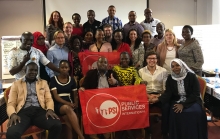
 Young workers from Ghana, Nigeria, Kenya, Tanzania, Uganda, Zanzibar, and Sweden met in Kenya’s capital, Nairobi, to discuss issues surrounding Quality Public Services, Tax Justice and Gender Equality.
Young workers from Ghana, Nigeria, Kenya, Tanzania, Uganda, Zanzibar, and Sweden met in Kenya’s capital, Nairobi, to discuss issues surrounding Quality Public Services, Tax Justice and Gender Equality.
Drawn from the various sectors of PSI's work: education, energy, water, health, and local governance, the participants engaged in mainly group discussions to enable them to share their experiences especially with their colleagues from Sweden on the various thematic areas.
The PSI Pilot Trade Union School, organized by the PSI Young Workers and Projects Facilitator, Cedric Depollier, and the Sub-Regional Secretary for English-Speaking Africa, Everline Aketch, was aimed at setting the work method for future schools that will be held in six other regions in the future.
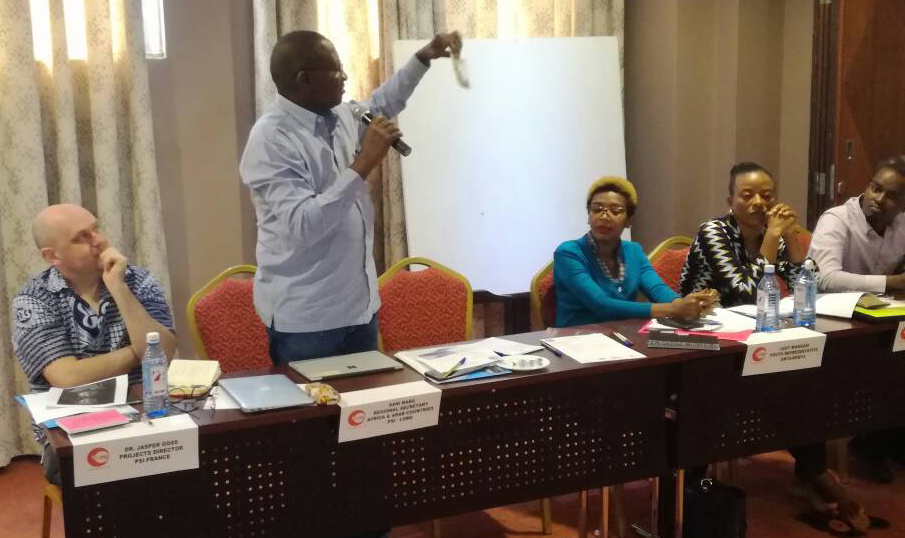
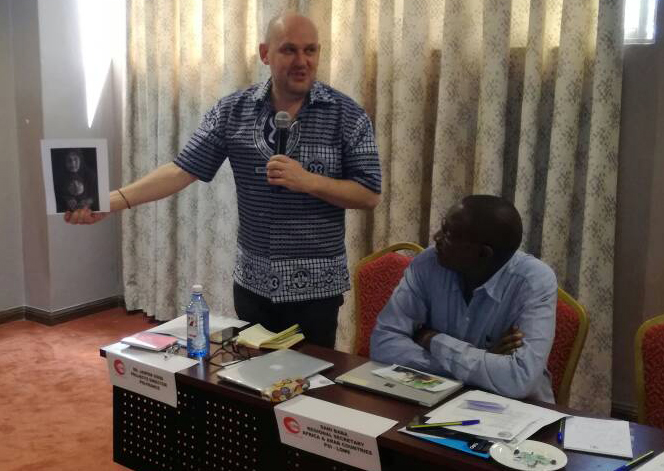
The agenda for the meetings included:
- The importance of education, capacity building and communication for organising and building strong unions from the base;
- Group discussion on “How can the Young Workers strengthen the struggle for strong and independent public services in Africa”;
- Group discussion on “The involvement of Young Workers structures in African and Swedish public sector unions”;
- People Over Profit: PSI Programme of Action for Young Workers and young trade union leaders;
- Quality Public Services and fight against privatisation: Challenges for the labour movement;
- Fighting privatisation and claiming public services back: Trade unions tools, strategies and best practices to defend Quality Public Services with the support of the people;
-

Group discussion on “Good union practices on QPS campaigns and the role of Young Workers”;
- Group discussion on “Definition of tax justice and the issues at stake”;
- The importance of a progressive tax system for Quality Public Services;
- Group discussion on “Challenges of the labour movement to address corruption and accountability on public services”;
- The importance of Gender Equality in the agenda of Trade Union organizations;
- How are Trade Unions developing gender policy? What does Trade Unions for Equality mean?
- Group discussion on “How can we strengthen the role of young workers and young women workers in trade unions?”
Generally, the three-day event discussed the challenges that face trade unions and what unions can do to consolidate the positive attributes of trade unions while negating the negatives; solidarity, recruitment, inclusiveness of both young workers and women in leadership positions, education and capacity building for members on various issues including the ILO Conventions.
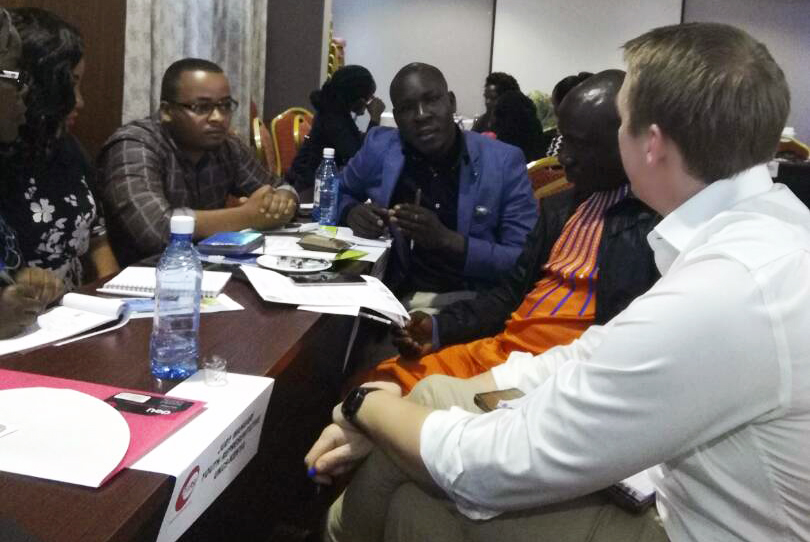
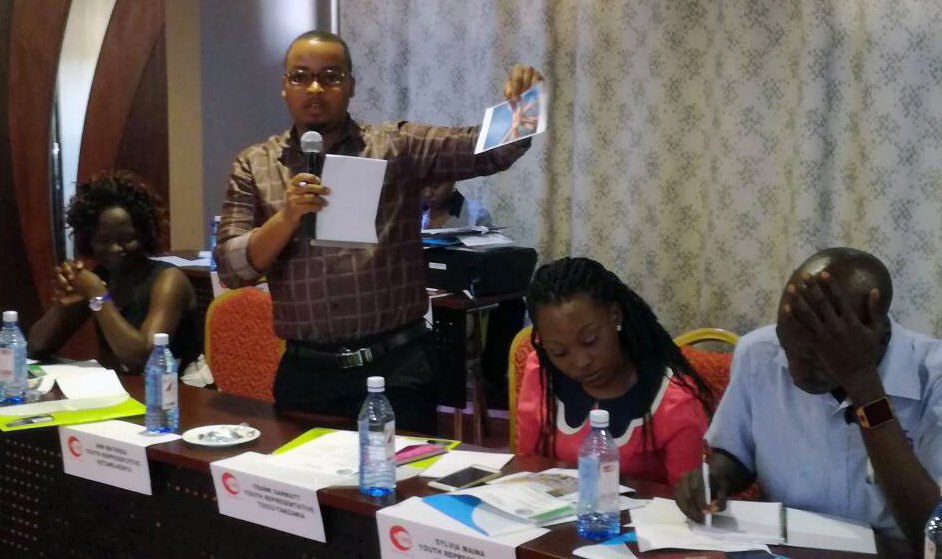
In terms of tax justice, it was clear that as youths it was important that they join the campaign since provision of domestic revenue was not only critical in provision of quality public services but also job creation by the government. Issues of current tax justice debates including illicit financial flows were discussed.
Tax levied was found to be not progressive and a majority of low incomes earners were paying more compared to the high earning corporations. They also noted that the high taxes discourage young workers from entering the production sector and working hard.
Gender equality and equity was seen as a critical element of the trade unions work. The young workers observed that if trade unions address the issues of gender equality at all levels, including the unions themselves, then more women will be encouraged to join the trade unions. They stressed that unions must walk the talk of implementing gender equality by:
- Advocating for affirmative action in leadership positions
- Undertaking education and capacity building for women
- Developing gender policies that will address issues like parental care among others.
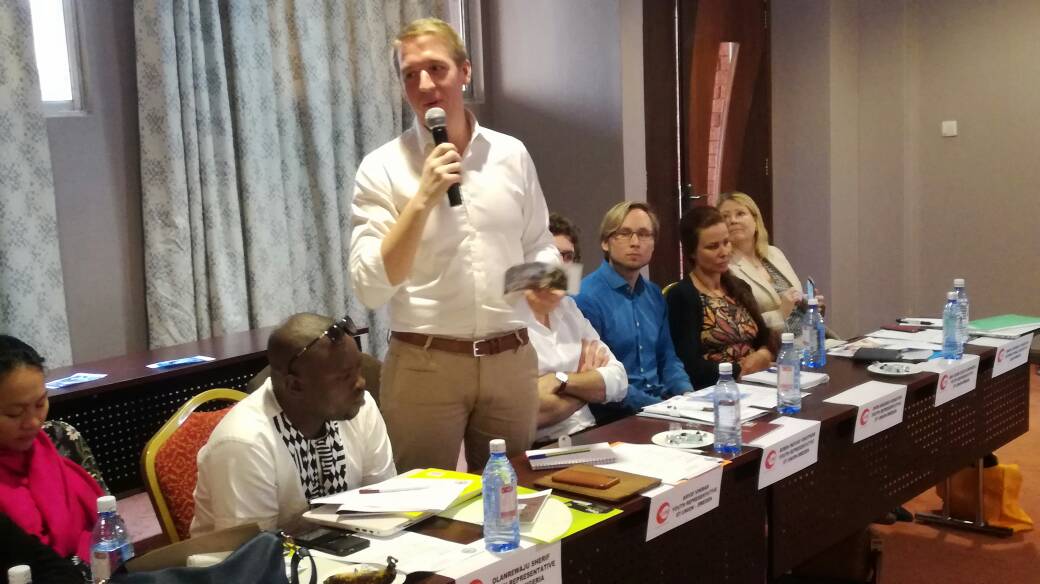
General analysis of gender equality as reflected by various top union leadership positions was made and it was found that a majority of the trade unions were still lagging behind in terms of ensuring equitable representation of women and youths at top decision-making organs.
The youth academy was completed by a Parliamentary tour where the Young workers were given the opportunity to learn about the history and working method of parliament. They later attended the proceedings of the parliament. In addition, a visit was made to the Immigration office. Young workers were taken through the functions of the different departments and also the process of citizenship and the laws that govern us.

